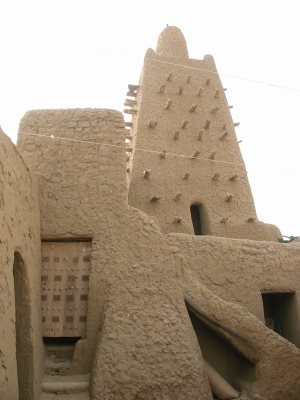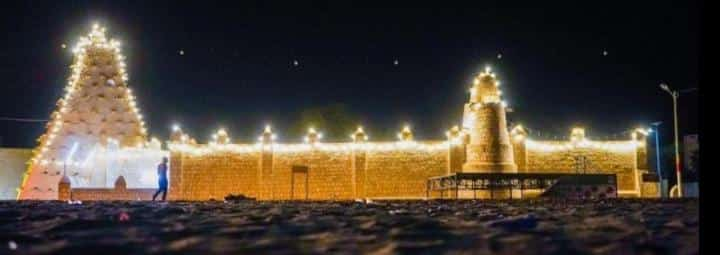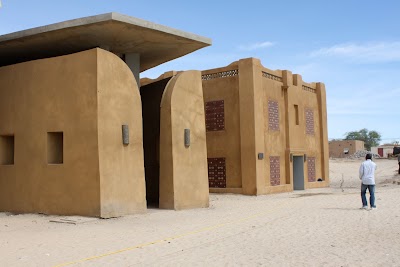Market of Timbuktu (سوق تمبكتو)
Overview
The Market of Timbuktu, located in the storied town of Timbuktu in the Tombouctou Region of Mali, is a destination rich in history, cultural significance, and vibrant traditions. Nestled at the edge of the Sahara Desert, this ancient market draws visitors from around the globe, offering a captivating glimpse into a city once celebrated as a center for trade, culture, and Islamic learning.
Dating back to the city's golden age in the 14th and 15th centuries, Timbuktu's market played a pivotal role in the trans-Saharan trade routes. Merchants from North Africa, sub-Saharan Africa, and beyond converged in this bustling hub to exchange gold, salt, ivory, and other precious goods. At its zenith, Timbuktu was not only a thriving commercial center but also a renowned seat of learning, attracting scholars to its esteemed schools and libraries, where they studied a diverse range of subjects.
Today, visitors to the Timbuktu market can still sense the echoes of its illustrious past. The market is a vibrant tapestry of stalls, offering an eclectic mix of goods that range from handmade crafts and traditional textiles to spices, fresh produce, and livestock. As you meander through the narrow alleys, you’ll encounter brightly colored fabrics, intricately woven baskets, and finely crafted leather goods—each piece telling the story of the skilled artisans behind them.
One of the market's most remarkable features is its diversity. Here, Tuareg nomads in distinctive indigo robes mingle with Songhai traders, Fulani herders, and Arab merchants, reflecting the city’s historical role as a melting pot of cultures. This harmonious blend of languages, attire, and traditions creates a lively and welcoming atmosphere, inviting visitors to immerse themselves in the local experience.
Among the many attractions, the artisans' quarters are particularly captivating. Visitors can watch craftsmen at work, shaping pottery, weaving textiles, or engraving intricate designs into metal. Witnessing these age-old techniques firsthand offers a unique insight into the region's enduring cultural heritage, making it a highlight for many travelers.
The market serves as more than just a commercial hub; it is a social center where locals gather to catch up on news, share stories, and enjoy the community spirit. The air buzzes with the sounds of haggling, laughter, and animated conversations, creating an immersive experience that engages all the senses.
Interesting facts about the market include its vital role in the historic salt trade. Known as "white gold," salt was a highly valued commodity transported by camel caravans across the Sahara Desert. The salt slabs, sourced from the mines of Taoudenni, were essential for preserving food and were often traded for gold and other valuables. This trade played a crucial role in Timbuktu's wealth and global influence during its peak.
Another fascinating aspect of the market is the annual Festival in the Desert, which attracts musicians, artists, and visitors from around the world. Although the festival has had to adapt to changing security conditions in Mali, its spirit of celebration continues, showcasing the rich cultural tapestry of the region and honoring Timbuktu's historical importance as a crossroads of global cultures.
For those intrigued by history, the market serves as a gateway to exploring more of Timbuktu's architectural and scholarly heritage. Nearby attractions include the fabled Sankore University and the Djinguereber Mosque, both UNESCO World Heritage sites that reflect the city's historic stature as a center of learning and spirituality.
In summary, the Market of Timbuktu is not merely a place for buying and selling; it stands as a living testament to the city's historic grandeur and enduring cultural significance. Whether you are a history enthusiast, a culture seeker, or simply a curious traveler, the market offers a rich and engaging experience that beautifully encapsulates the spirit of this legendary city. As you immerse yourself in the vibrant ambiance of the market, you’ll gain a deeper appreciation for the intricate tapestry of life that has made Timbuktu a destination like no other.






